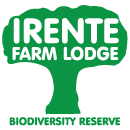The Usambaras are one of Conservation International’s World Biodiversity Hotspots – that is, they are recognized as an area with exceptional diversity of species. There is a project here to restore this biodiversity by replanting trees, shrubs and climbers native to the Western Usambaras. This in turn will attract more birds, butterflies, reptiles and small mammals.
History
The origin of the name Irente is obscure. Irente was one of the experimental coffee estates established in 1896 by the German colonial government´s plantation company (Deutsche-Ostafrikanische Plantagengeschellschaft). Other estates established in the same year were Gare, Maweni, Sakharani, and Mazumbai. The aim was to test coffee as a crop, but due to soil infertility, coffee as a plantation crop was abandoned by 1914.
The Germans lost the colony to the British in 1918, and it was probably after this that Irente coffee estate came into the hands of a Greek farmer, Mr. W.J. Tamé. By all accounts Mr Tamé was a diligent farmer, he had 60 acres of coffee trees, a bacon factory and a dairy producing cream. With the coming of independence for Tanganyika in 1961 Mr. Tamé sold up to the DKMS (Lutheran Church) for £25,000.
The Lutheran church of Tanganyika converted the bacon factory into the Irente Mental Hospital and these patients worked on the farm in order to produce food in support of the hospital.
Over the years different managers developed the farming infrastructure, and milk production started with the introduction of Fresian-type cows. However, farming never really showed a consistent profit, the excuse being drought or too much rain, diseases of crops and cattle, and low prices for produce. In 2004 all foreign assistance to Irente was stopped, but the reserve (as it is now called) had found its niche relying on four pillars.
- Nature based tourism
- Food processing
- Biodiversity protection
- Farming
The enterprise has become more profit-oriented and conservation-centred, as it is indeed an income generating enterprise of the North Eastern Diocese of the Evangelical Lutheran Church of Tanzania (Ned ELCT). On the property there are now 3 institutions, Irente School for the Blind, Irente Children´s home, Rainbow school and Irente church. Irente Biodiversity Reserve seeks to integrate conservation, production and rural development by a mix of activities, taking into account the importance of both people and biodiversity.


AREA: 200 hectares
HEIGHT: 1450 metres above sea level
RAINFALL: 800 to 1280 millimetres (average 1060mm)
TEMPERATURES: minimum 10 degrees (july-august)
maximum 30 degrees (january-february)



